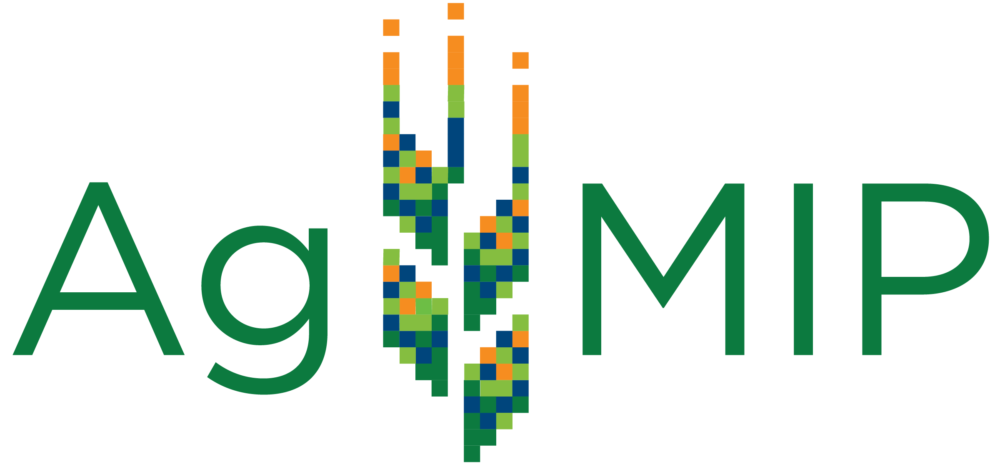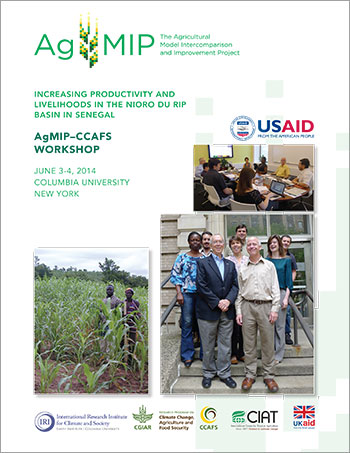AgMIP – CCAFS Team Up to Investigate Index Insurance in Senegal
Jul 9, 2014
A joint CGIAR Research Program on Climate Change, Agriculture and Food Security (CCAFS) and Agricultural Model Intercomparison and Improvement Project (AgMIP) meeting was held June 3-4 to kick off a USAID-CIAT (International Center for Tropical Agriculture) funded study “Increasing Productivity and Livelihoods in the Nioro du Rip Basin in Senegal” at the Earth Institute at Columbia University in New York. The meeting brought together researchers from CCAFS, the International Research Institute for Climate and Society (IRI), NASA Goddard Institute for Space Studies, University of Florida, University of Ghana, the International Crops Research Institute for the Semi-Arid Tropics (ICRISAT) and the Center for Climate Systems Research. The goal of the study is to investigate how index insurance can be optimized to encourage yield-enhancing farm management choices in Senegal.
Traditional crop insurance has not been adopted in many developing countries resulting in farmers’ inability to access credit or borrow money for farm investment. Often claims are difficult to verify and necessitate inspection in hard to reach locations, and payouts for yield losses don’t incentivized farmers to improve their crops. Index insurance, an alternative to traditional indemnity insurance, is based on an index, such as the number of rainy days, to trigger payouts. The farmer is paid once the threshold for the index is reached regardless of the outcome of the farm’s harvest and thus alleviates the need for farm visits. However, setting the appropriate index and trigger point for the insurance is critical and will influence whether or not farmers will adopt the insurance. If the index is appropriate, the farmers will feel secure enough to risk investment in fertilizer or other farm improvements that can mitigate the likelihood of food insecurity in the future.
Both AgMIP and CCAFS have research activities in West Africa. The AgMIP West African Team has focused part of its integrated assessment activities in the Nioro du Rip Basin in Senegal and the data and models from the team’s integrated assessments will form the basis for assessing technology and policy options in the region. CCAFS has studied weather-index insurance for several years as a way of helping West African farmers reduce weather risks associated with increased inputs for achieving higher productivity.
At the meeting in New York participants developed three questions to focus their research. What is the benefit to farmers that purchase insurance? What is the benefit to farmers that adopt riskier practices? What is the benefit of insurance enabling riskier practices? One of the goals of the research will be to develop an insurance product that can be used to reduce the risk aversion of farmers to invest in a productive opportunity. In addition the possibility that the insurance might give famers access to credit, protect existing assets, and lead to income smoothing will be investigated.
The researchers plan to use the Tradeoff Analysis – Minimum Data (TOA-MD) economic model in order to test options for the index insurance. Next steps for the group include developing a set of protocols, including any modifications to the model, and reconvening at a workshop in Senegal to help guide the work to be done.
Jim Jones, AgMIP Co-Principal Investigator and workshop participant, stated about the meeting, “This workshop was very important in planning details of a new joint AgMIP – CCAFS cooperative project funded by USAID. It was perhaps even more important strategically in that it helped expand the integrated assessment approach that we have been developing and using in AgMIP to include benefits and tradeoffs of intensification options combined with weather index insurance in the nearer term.”

